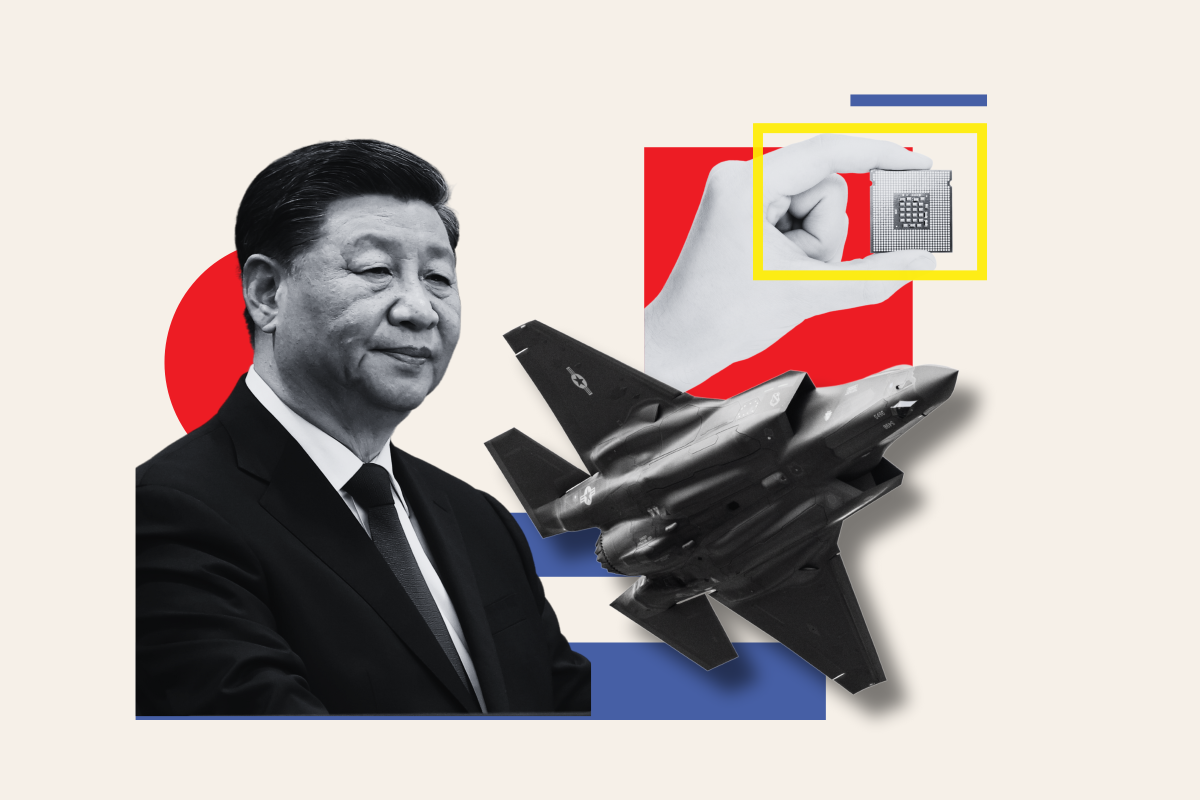Export restrictions China has imposed on its rare earth element exports to the U.S. include resources critical for avionics which could deal blow to American plans for a sixth-generation jet.
Beijing has responded to President Donald Trump’s move to impose 34 percent tariffs by curbing mined minerals as well as permanent magnets and other finished products.
Industry sources told Reuters that Beijing’s move is of concern for some U.S. aerospace manufacturers because they are sole-sourced from China for use in avionics.
China’s tit-for-tat move comes only two weeks after Trump announced that Boeing had secured the contract to develop the F-47 which is designed to succeed the F-22 Raptor and form the backbone of the U.S. Air Force’s next-generation fleet.
Newsweek has contacted the White House for comment.

Photo-illustration by Newsweek/Getty
Why It Matters
China produces around 90 percent of the world’s rare earths, a group of 17 elements used in the defense, electric vehicle, energy and electronics industries.
Angered by Trump’s decision to hike tariffs against most Chinese products to 54 percent, Beijing announced controls on these resources as part of a broader package of tariffs and company restrictions.
As the U.S’ main supplier of rare earths, China’s move shows it is prepared weaponize its dominance over the mining and processing of critical minerals and how a showdown with Trump can pose a risk to the U.S. Next Generation Air Dominance (NGAD) program to develop fighter jets of the future.
What To Know
China announced on Friday export curbs on mined minerals and permanent magnets and other finished products that will be difficult to replace.
Critically, around five percent of U.S. use of rare earths goes on defense applications, according to the Congressional Research Service.
Lockheed Martin’s F-35 stealth fighter uses 920 pounds of rare earths per plane in its electronic warfare systems, targeting radars, and electric motors that move the plane’s rudders, according to the Science History Institute.
China’s Ministry of Commerce said seven categories of medium and heavy rare earths, including samarium, gadolinium, terbium, dysprosium, lutetium, scandium and yttrium-related items would be on this list.
Chinese state newspaper the Global Times also announced export controls on items related to tungsten, tellurium, bismuth, molybdenum and indium.
Yttrium is essential for high-temperature jet engine coatings, high-frequency radar systems and precision lasers, the publication Cleantechnica.com reported. It also allows thermal barrier coatings on turbine blades to stop aircraft engines from melting mid-flight
The export controls announced last Friday are not an outright ban, but China can restrict the number of export licenses it issues which could cause a scramble for access to the limited sources of alternative supply.
China’s response to Trump’s tariffs shows its influence in the U.S. defense industry, and comes after the president announced the Pentagon’s decision to move forward with a next-generation fighter jet titled F-47.
But stealth aircraft like the F-47 depend on rare earth elements such as neodymium, praseodymium, dysprosium, and terbium for high-performance magnets, actuators, and radar systems, according to the consultancy SFA Oxford.
They also need metals like titanium, tungsten, and niobium for structural strength, heat resistance, and stealth coatings.
What People Are Saying
China’s commerce ministry: “The Chinese government has implemented export controls on relevant items in accordance with the law in order to better safeguard national security and interests and fulfill international obligations such as non-proliferation.”
SFA Oxford: As the United States accelerates development under the Next Generation Air Dominance (NGAD) program, securing access to these critical inputs is now as essential to national defense as the platforms themselves.”
What Happens Next
The Trump administration has warned that any retaliation to its tariffs could cause an escalating trade war. China Program senior director at the Foundation for the Defense of Democracies (FDD), Craig Singleton, told Newsweek that Beijing may tighten controls further on strategic minerals like gallium and graphite, but is cautious about shocking global markets.
“China is likely to keep wooing Europe and emerging markets, aiming to frame itself as the aggrieved party and limit international alignment with Washington,” he said.


